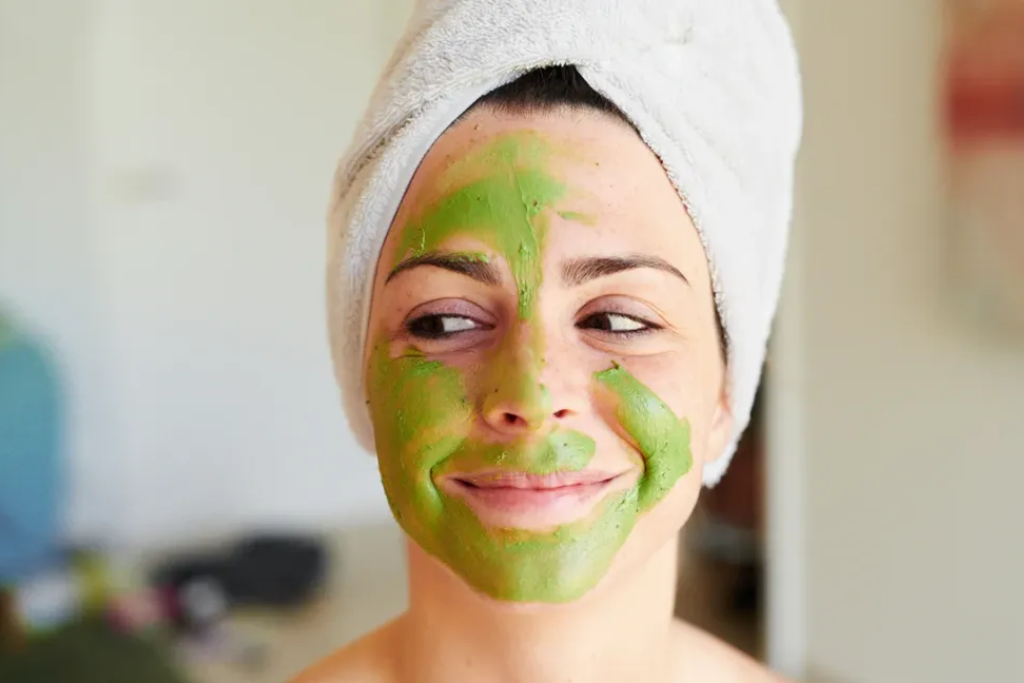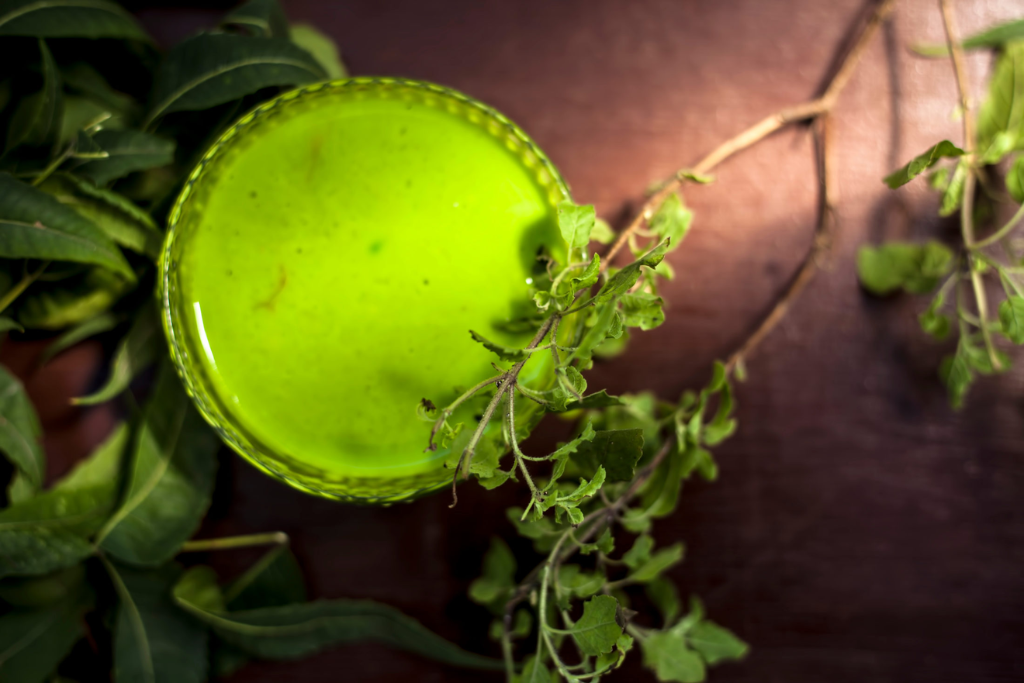Unlock the secret to radiant, glowing skin with an ancient herbal remedy – Tulsi leaves! Derived from the sacred Indian plant known as Holy Basil, Tulsi is revered for its immense healing properties and has been used for centuries in Ayurvedic medicine. But did you know that this remarkable herb can work wonders for your skin too? From fighting acne to soothing inflammation, Tulsi leaves offer a natural and effective solution for various skincare concerns. In this blog post, we will delve into why Tulsi is good for your skin, how to incorporate it into your skincare routine and explore the incredible benefits of this powerful leaf. Get ready to embrace healthier, more beautiful skin thanks to Mother Nature herself!
Why is Tulsi Good for Your Skin?
Tulsi, also known as Holy Basil, possesses an array of unique properties that make it a potent ingredient for skincare. Tulsi leaves are rich in antioxidants that help counteract the damaging effects of free radicals, which can lead to premature aging and dull skin. These antioxidants work tirelessly to protect your skin from environmental stressors and keep it looking youthful.
Additionally, Tulsi has powerful anti-inflammatory properties that can reduce redness and swelling associated with acne or other skin conditions. It helps soothe irritated skin and calms any discomfort or itching you may experience.

Furthermore, Tulsi is believed to have antimicrobial properties that can combat bacteria on the surface of the skin. This makes it especially beneficial for oily or acne-prone skin types, as it helps control breakouts and prevents further bacterial growth.
Another remarkable benefit of Tulsi is its ability to purify the blood when consumed internally. By improving blood circulation, Tulsi ensures proper nutrient delivery to your skin cells, resulting in a healthier complexion overall.
Using products containing Tulsi leaves can provide aroma-therapeutic benefits too! The natural fragrance of this herb promotes relaxation and reduces stress levels – all while enhancing your skincare routine!
So whether you’re dealing with acne woes or simply want a natural way to nourish your skin, incorporating Tulsi into your skincare regimen could be just what you need for radiant and revitalized skin!
How to Use Tulsi for Your Skin
Tulsi, also known as holy basil, has been used for centuries in Ayurvedic medicine for its numerous health benefits. But did you know that this sacred herb can work wonders for your skin too? If you’re wondering how to incorporate Tulsi into your skincare routine, we’ve got you covered!
One of the simplest ways to use Tulsi for your skin is by making a homemade face mask. Crush a handful of fresh Tulsi leaves and mix them with some yogurt or honey to create a paste. Apply it evenly on your face and let it sit for about 15 minutes before rinsing off with lukewarm water. This natural face mask will help cleanse your pores, reduce acne breakouts, and leave your skin feeling refreshed.

You can also infuse Tulsi leaves in boiling water and use it as a toner. After washing your face, simply dab the cooled-down Tulsi water onto your skin using a cotton pad. It will help tighten the pores, balance oil production, and soothe any inflammation or redness.
If you prefer a more indulgent experience, why not try adding dried Tulsi leaves to your bathwater? The aromatic properties of the herb will relax both your mind and body while nourishing and rejuvenating your skin.
With its anti-inflammatory and antibacterial properties, Tulsi is an excellent natural remedy for various common skin conditions like acne, eczema, and psoriasis. Its antioxidant content helps fight free radicals that can damage the collagen in our skin cells over time.
So next time you’re looking to revitalize dull-looking skin or combat pesky blemishes naturally without harsh chemicals – consider turning to Mother Nature’s gift: Tulsi! Your radiant complexion will thank you!
Tulsi Leaves and Skin Benefits
Tulsi leaves, also known as holy basil, have been used for centuries in Ayurvedic medicine for their numerous health benefits. But did you know that these magical leaves can work wonders for your skin too? That’s right. Tulsi leaves are packed with antioxidants and other powerful compounds that can transform your skin and give you a healthy, radiant glow.
One of the key benefits of tulsi leaves for the skin is their ability to fight off free radicals. Free radicals are unstable molecules that damage collagen and elastin, leading to premature aging and wrinkles. The antioxidants in tulsi leaves neutralize these harmful free radicals, protecting your skin from oxidative stress and keeping it looking youthful.

Not only do tulsi leaves protect your skin from external damage, but they also promote healing from within. They have strong anti-inflammatory properties that soothe irritated skin and reduce redness. So whether you’re dealing with acne or sunburns, applying a paste or toner made from crushed tulsi leaves can provide relief and help speed up the healing process.
In addition to its antioxidant and anti-inflammatory properties, tulsi leaves also have antibacterial properties that make them effective against acne-causing bacteria. If you’re struggling with breakouts or oily skin, incorporating tulsi into your skincare routine can help clear up blemishes and keep your complexion balanced.
But wait, there’s more. Tulsi leaves are rich in vitamins A and C, which play a crucial role in maintaining healthy skin. Vitamin A helps repair damaged tissue, while vitamin C stimulates collagen production, improving elasticity and firmness.
Incorporating tulsi into your skincare routine is easy. You can make a simple face mask by grinding fresh tulsi leaves into a paste with some water or rose water. Apply this mixture onto cleansed skin and leave it on for about 15 minutes before rinsing off with warm water. This will not only rejuvenate your tired-looking skin but also help reduce the appearance of acne scars and dark spots.
Explore the “Future Trends in Healthcare” with our in-depth analysis of the latest trends. The future of healthcare is rapidly evolving, with new technologies and innovations emerging all the time. Some of the most promising trends include artificial intelligence, personalized medicine, and remote healthcare. These technologies have the potential to revolutionize the way we deliver and receive healthcare, making it more efficient, effective, and accessible.
